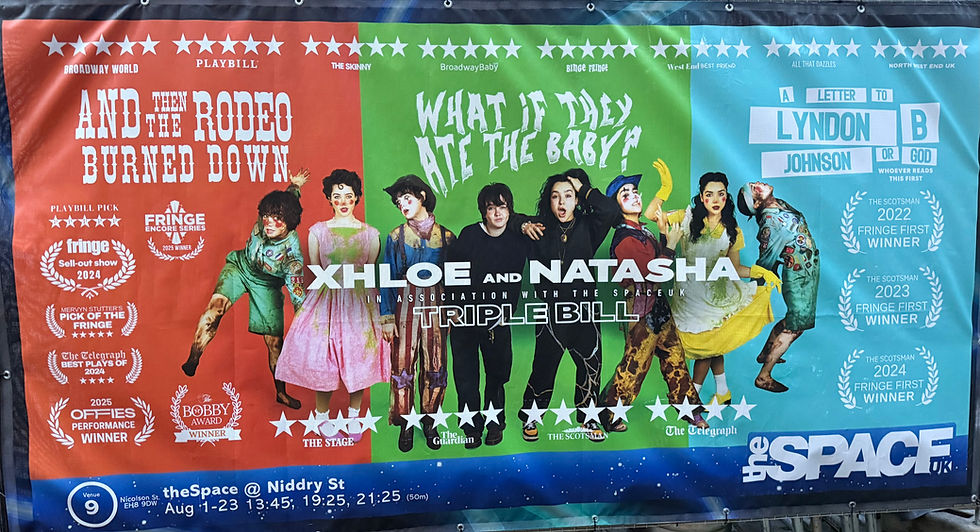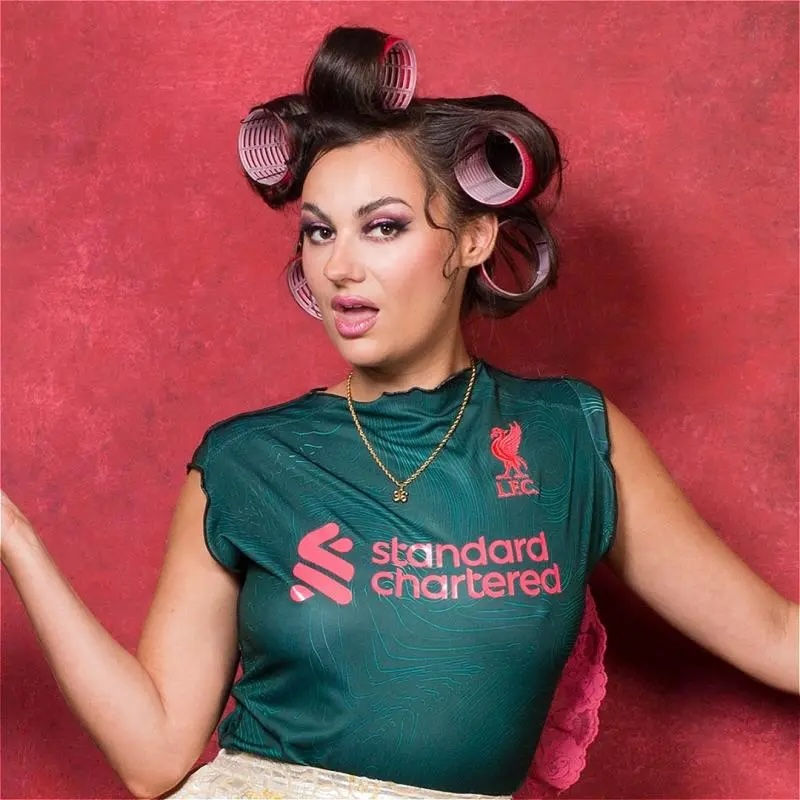Review: GUSLA at Summerhall, Main Hall - Ed Fringe
- Aug 5, 2023
- 2 min read
Updated: Aug 8, 2023
Review by Kate Gaul
“Gusla” (meaning witchcraft) is based on the second part and excerpts of the fourth part of Adam Mickiewicz's drama “Dziady” (“Forefathers' Eve”). Mickiewicz is considered the national poet of Poland and lifelong apostle Polish national freedom. Renowned director Grzegorz Bral, founder of Song of the Goat Theatre, has translated the Romantic classic into a gripping deeply emotional theatrical language. A detailed program tells us that growing out of a ritual in honour of the dead, “Gusla” touches not only on mourning and the loss of a loved one, but also on contemporary Poland and its great ideals. This performance is performed in Polish by a company of 9 actors and an onstage musician. It is produced by Lubuski Theater in Zielona Góra.
I learn from the program that in Slavic folklore, “Dziady” is a term for the spirits of ancestors and a collection of pre-Christian rites, rituals and customs that were dedicated to them. “Gusla” then is like encountering an ancient folk ritual associated with summoning of souls of the dead, during which the living help the dead regain peace of mind. The dead in return impart warnings and moral lessons to the living. The essence of these rituals is the communing of the living with the dead to establish relationships with the souls of ancestors who periodically return to where they once lived their lives. The aim of the ritual activity is to win favour with the dead, who are considered guardians of fertility and the harvest.
The performers are wraiths dressed in a kind of Mad-Max meets Siberian Sharman. The costuming is magnificent. Handmade and extremely individual using fabrics, artificial animal skins, beads, shells, and feathers. Elaborate animal head masks are worn; smudged makeup creates the feel that the ritual has been taking place over a long time. The haze filled atmosphere and continual music from a piano adds to the extreme mood. Each actor is given a spoken monologue and most of the ensemble text is sung. As there is no “fourth wall” the effect is that the ritualised performance is aimed directly to us. The language is guttural and sounds intense – the faces, bodies and emotions of the performers support this intensity. There is a lot of sweating and thrashing. The simplicity of the staging relies entirely on the performers and their bodies to create this complete and unknown world.
I make the link to a philosophy of intense acting which encompasses music, text, voice, body, and imagination, allowing actors to fully embody their roles and create performances with a strong musicality and sensory impact. The company’s commitment to integrating all of these elements in its training process has resulted in powerful performances of emotional depth.
“Gusla” is a rare opportunity to see this company on stage without concession to sur-titles or other methods of translation. Lubuski Theater ask us to be present, put aside preconceptions of high or obscure European performance and embrace the on-going creativity of a company committed to sitting at the edge of theatre-making. I note that Polish company Song of the Goat is presenting “Andronicus Synecdoche” at Edinburgh Fringe. I will make sure I catch it.

Image Supplied




